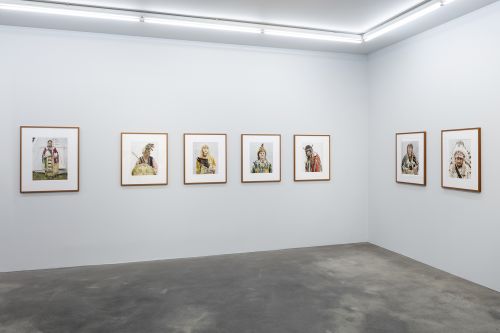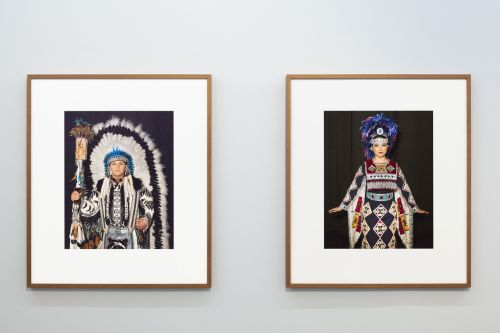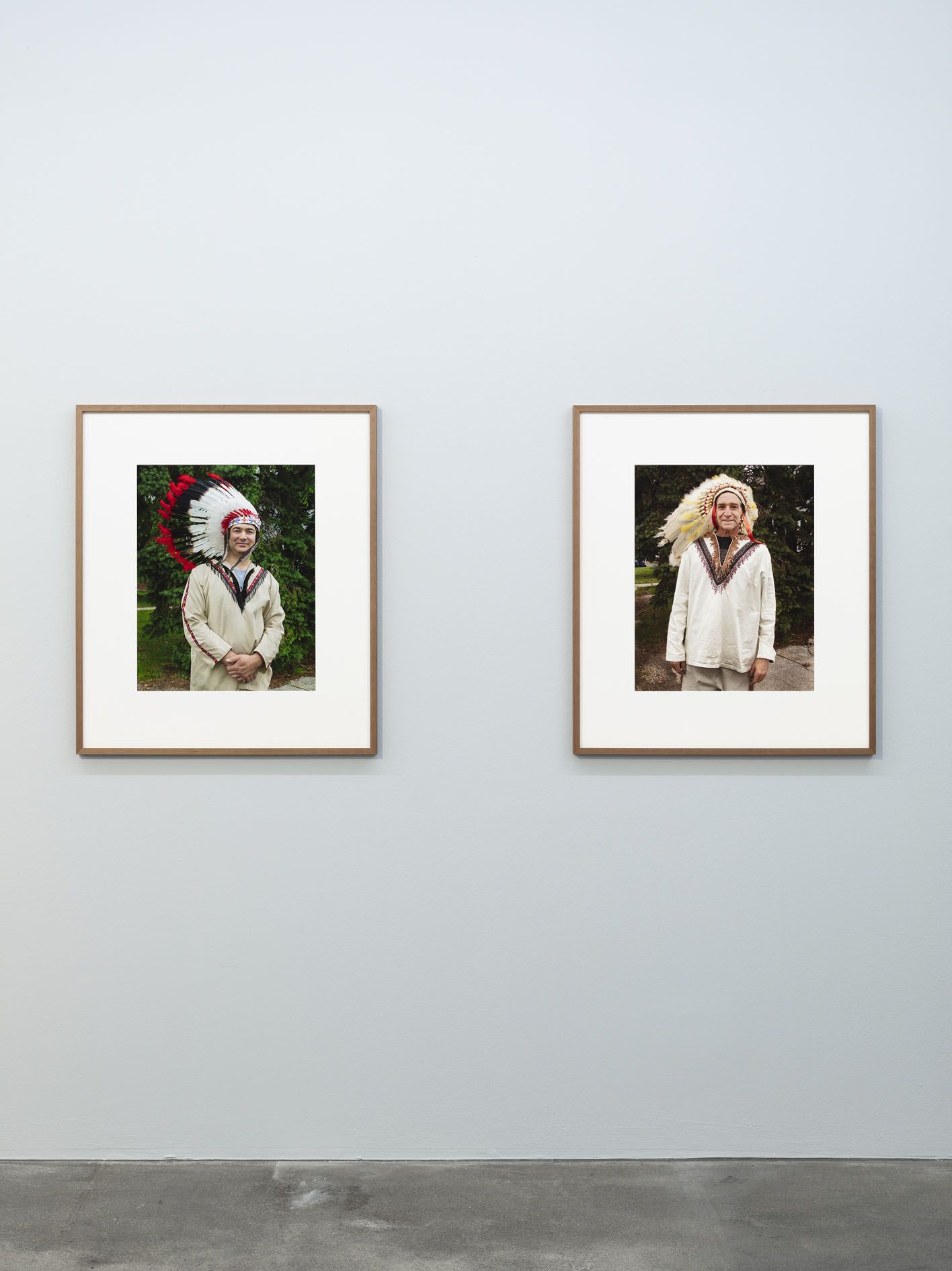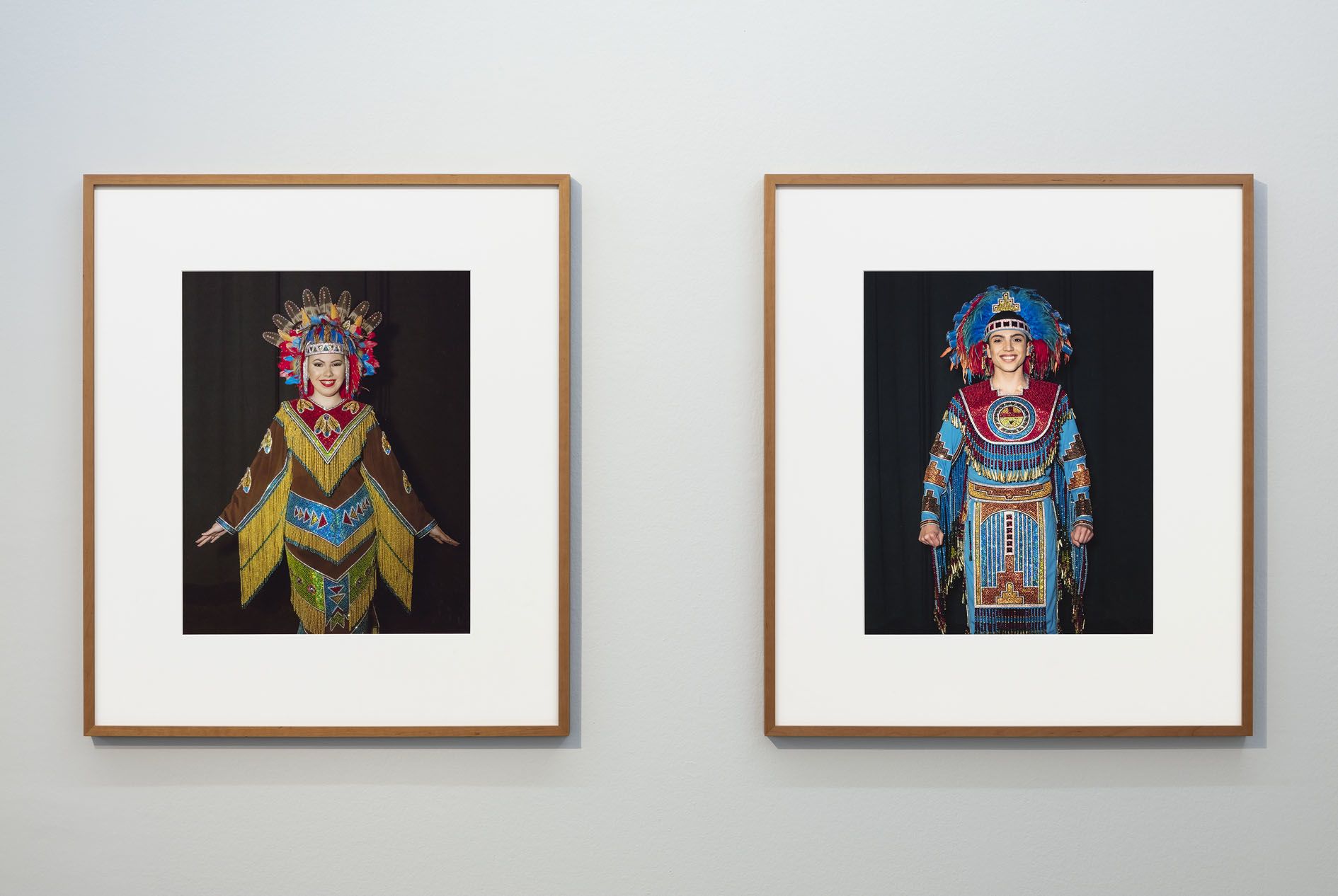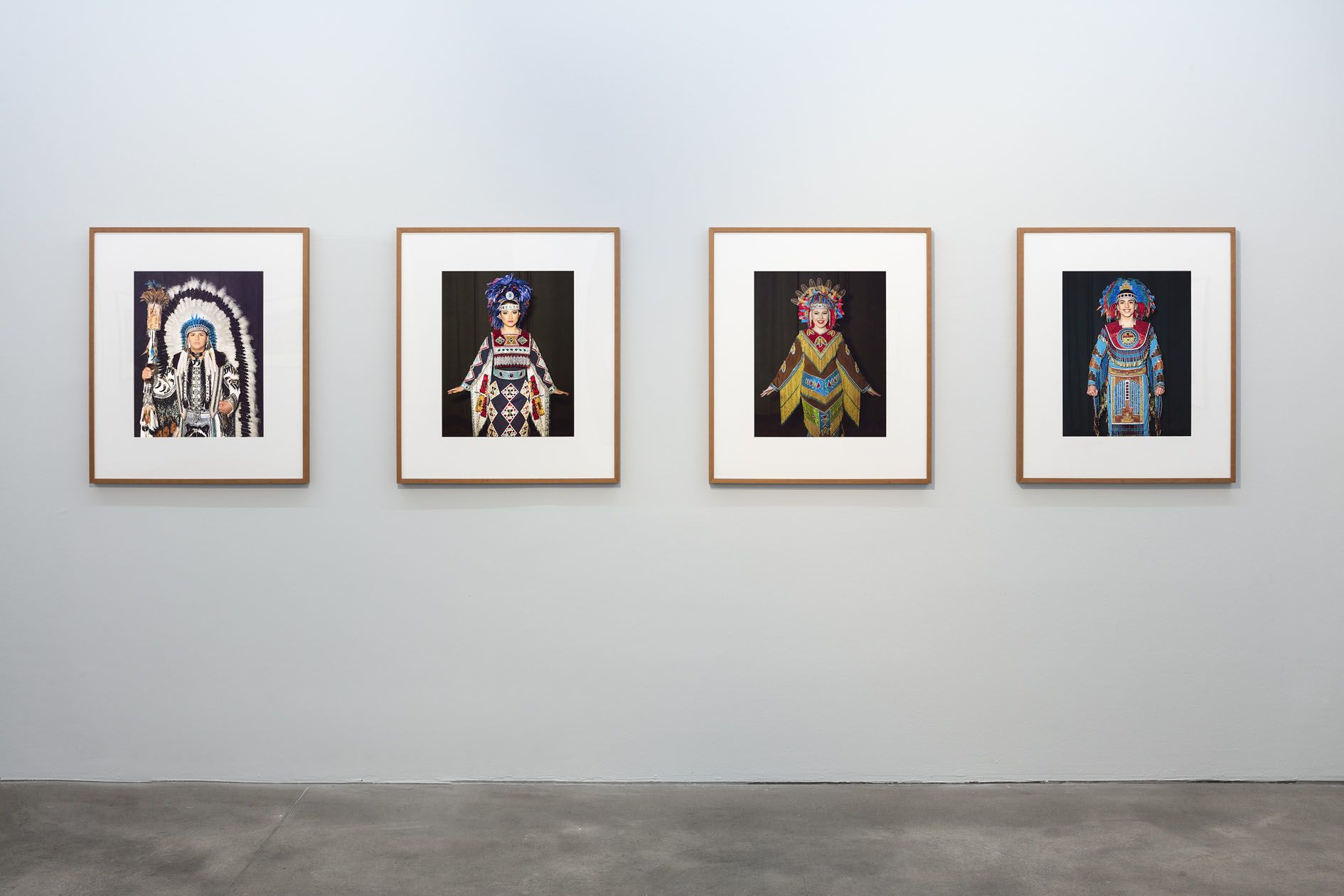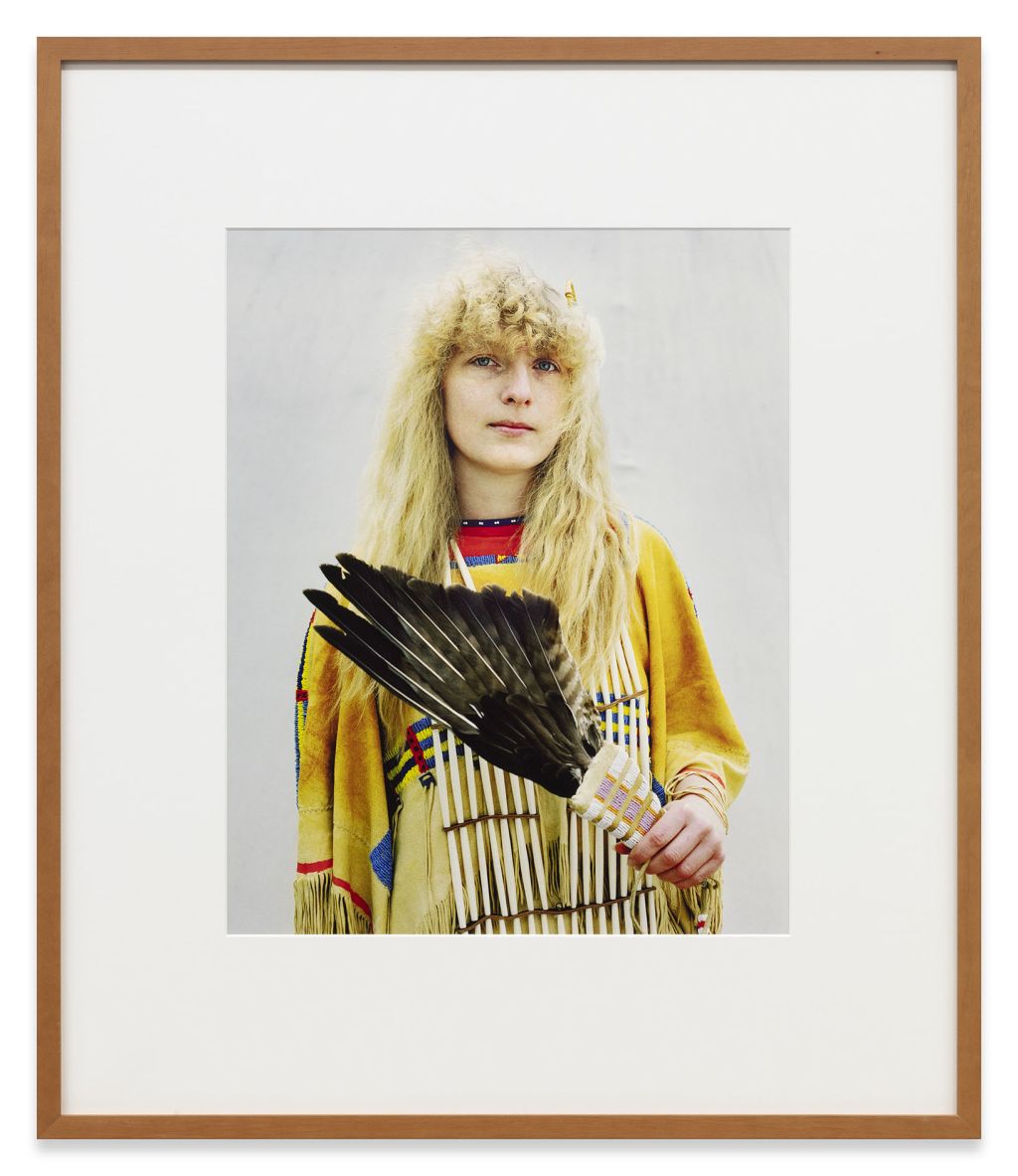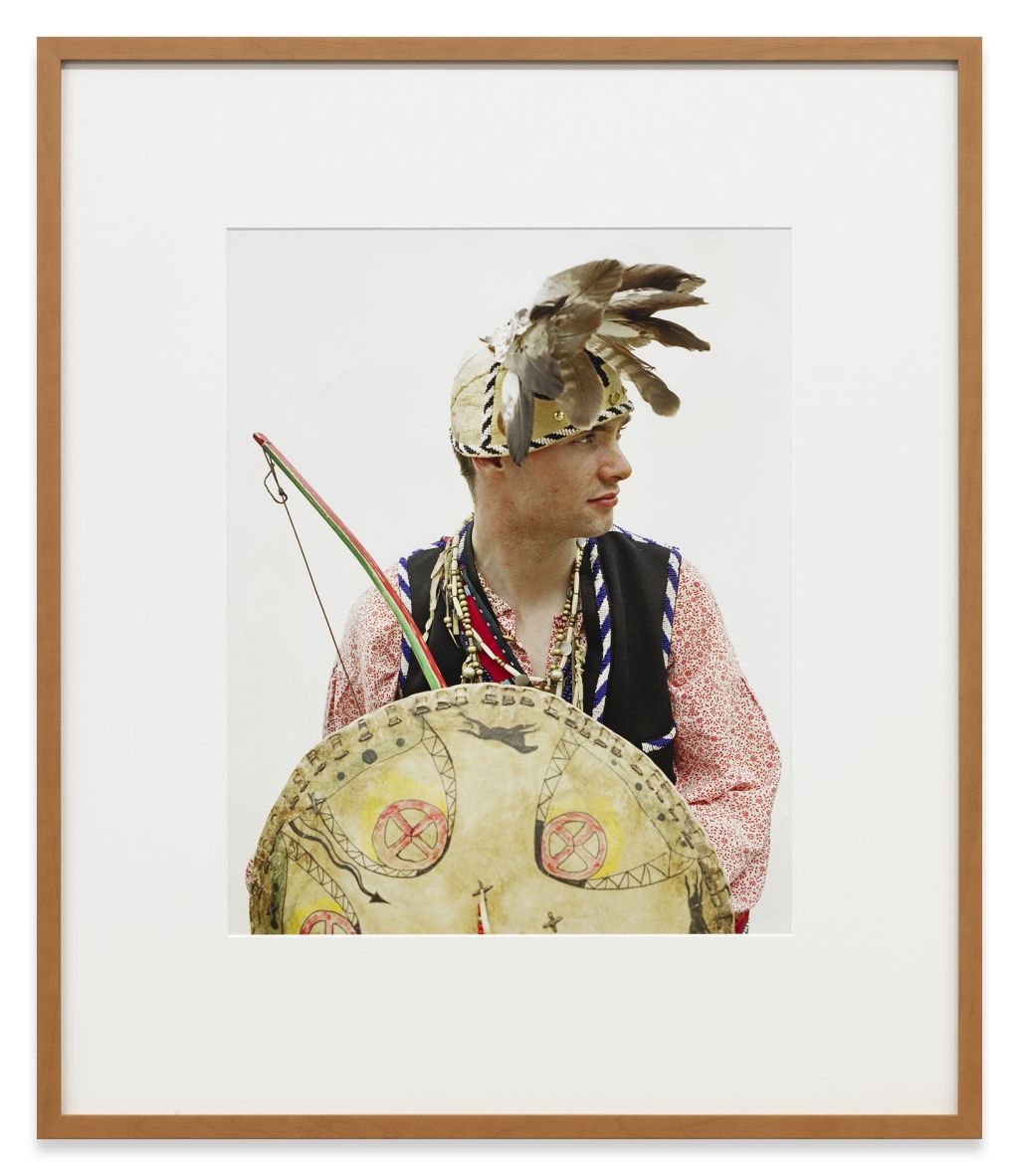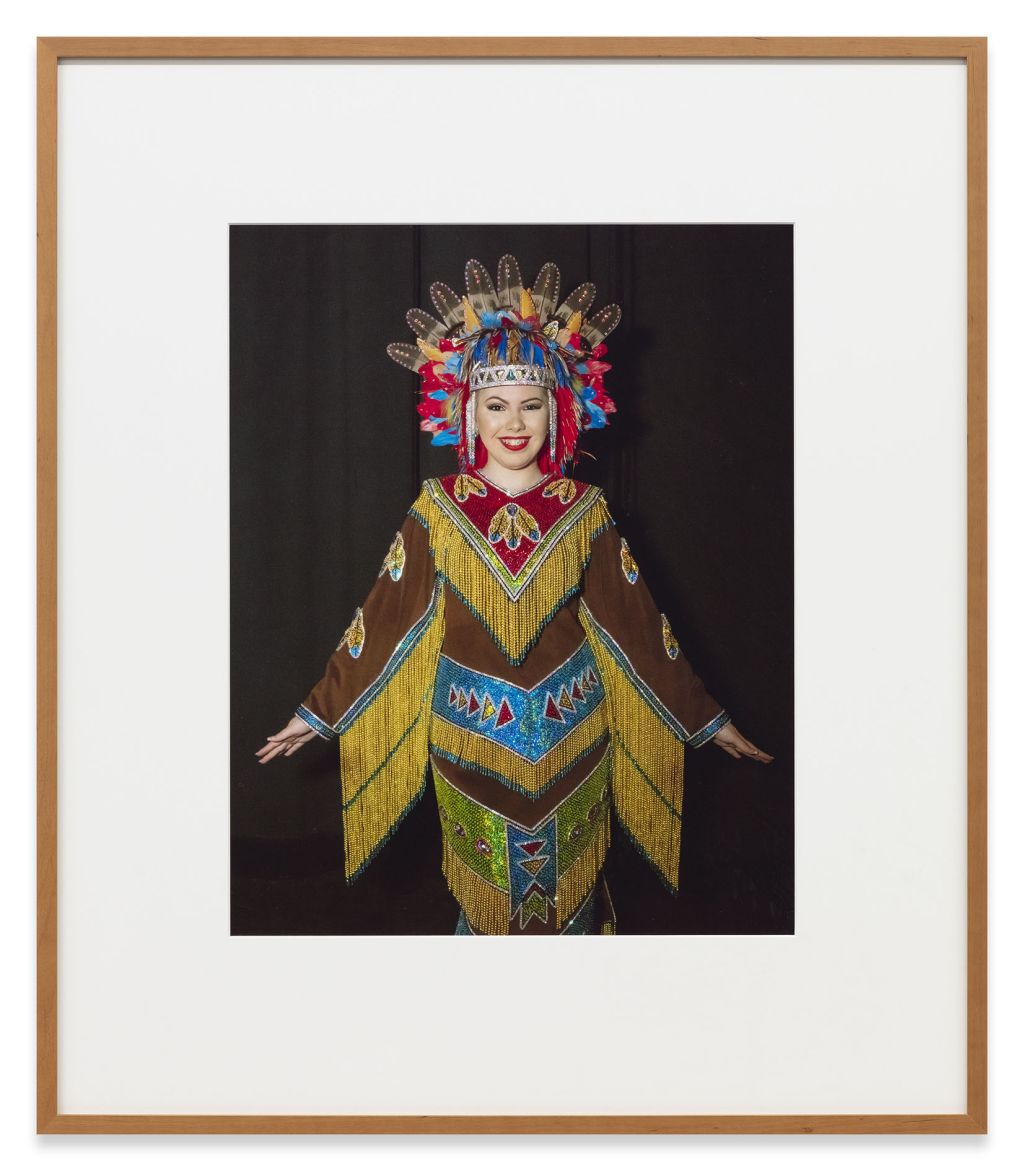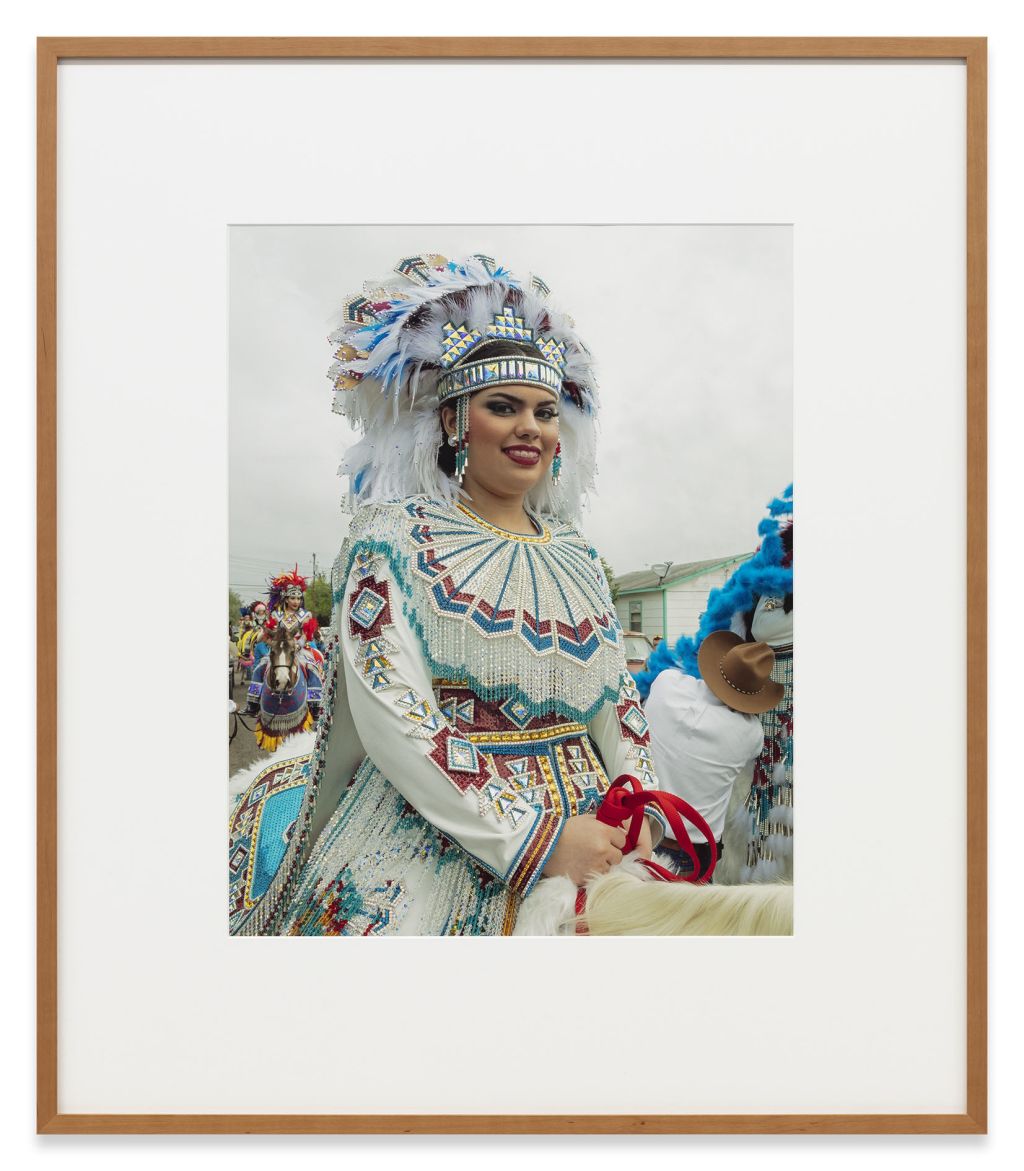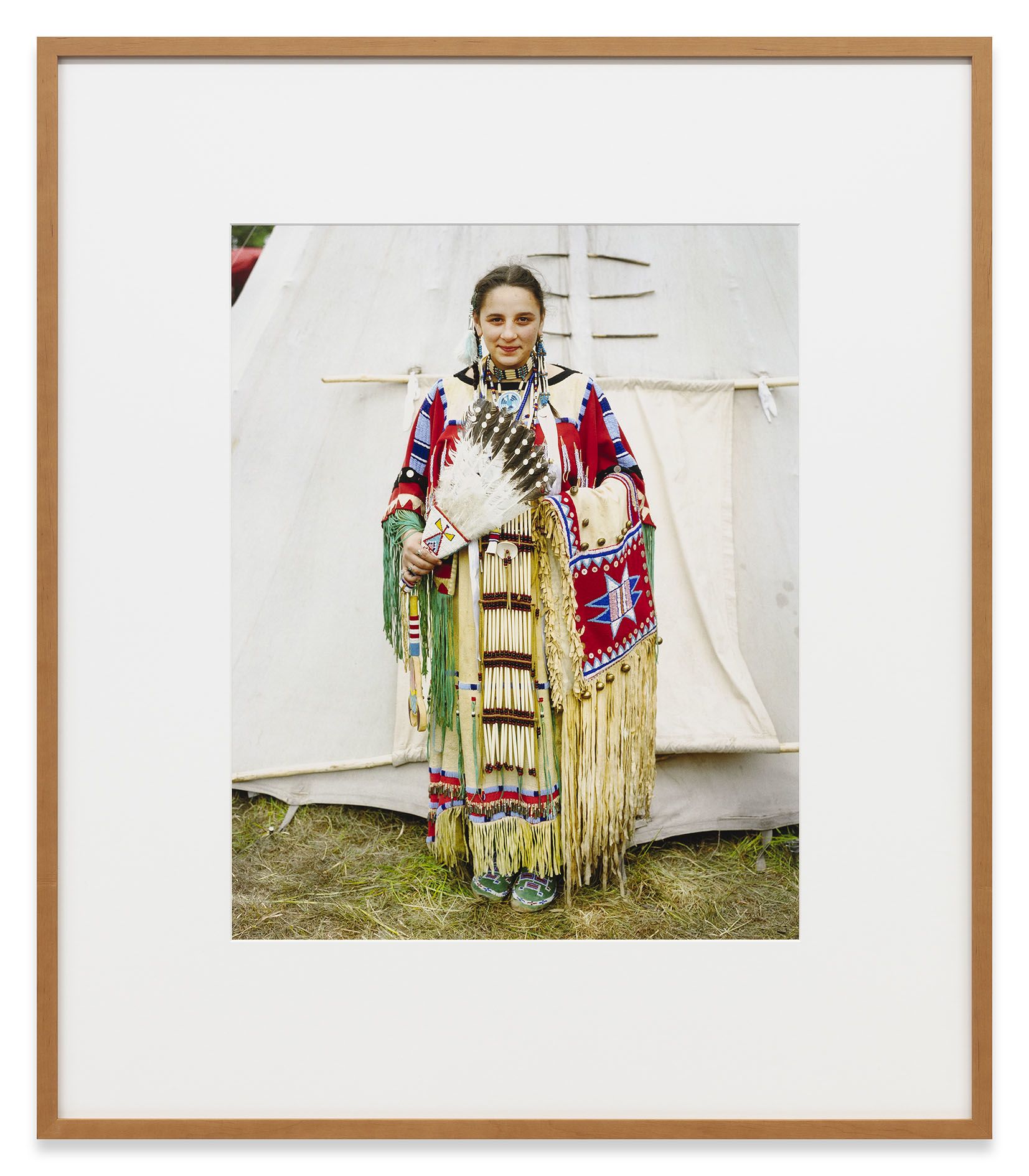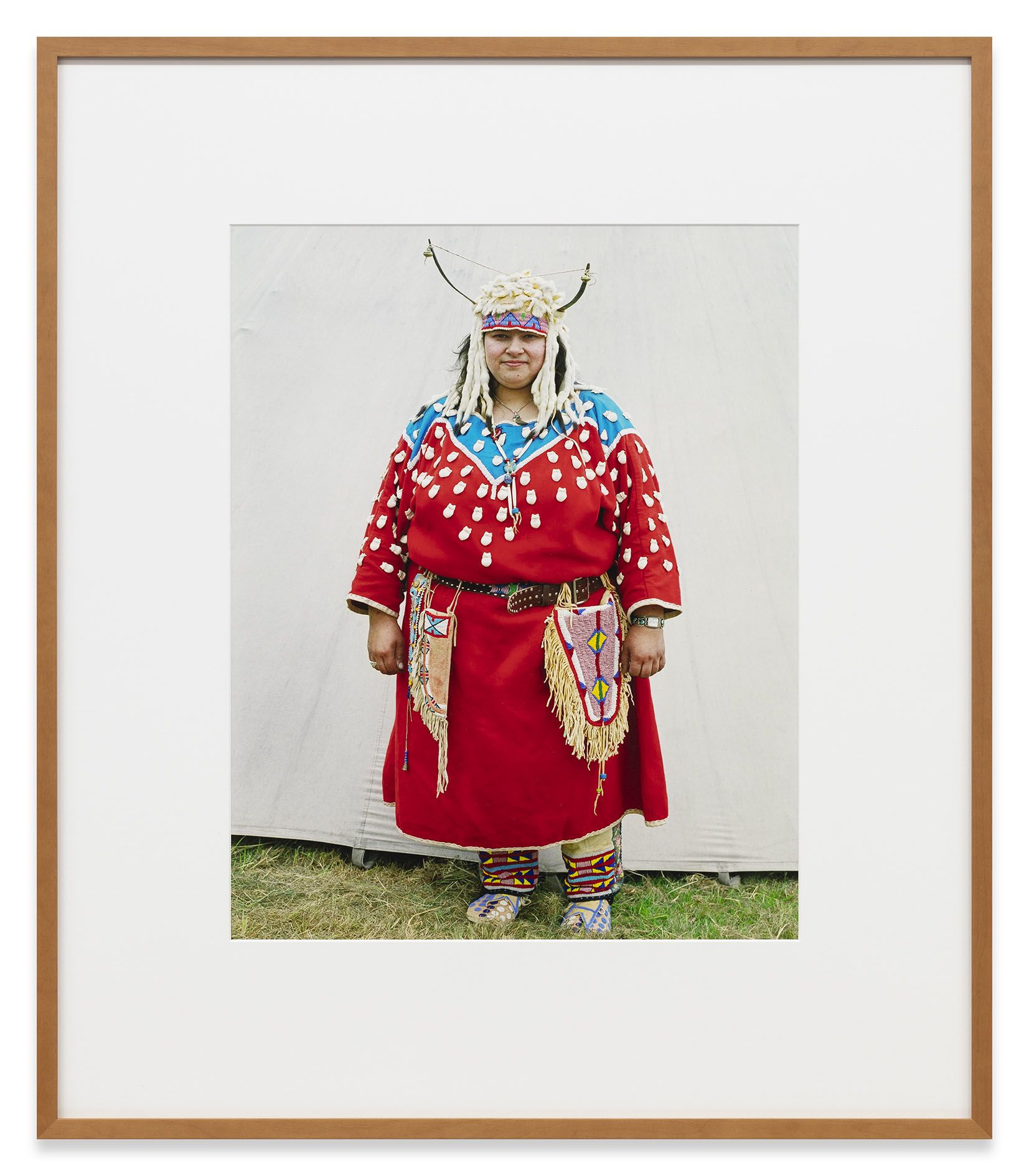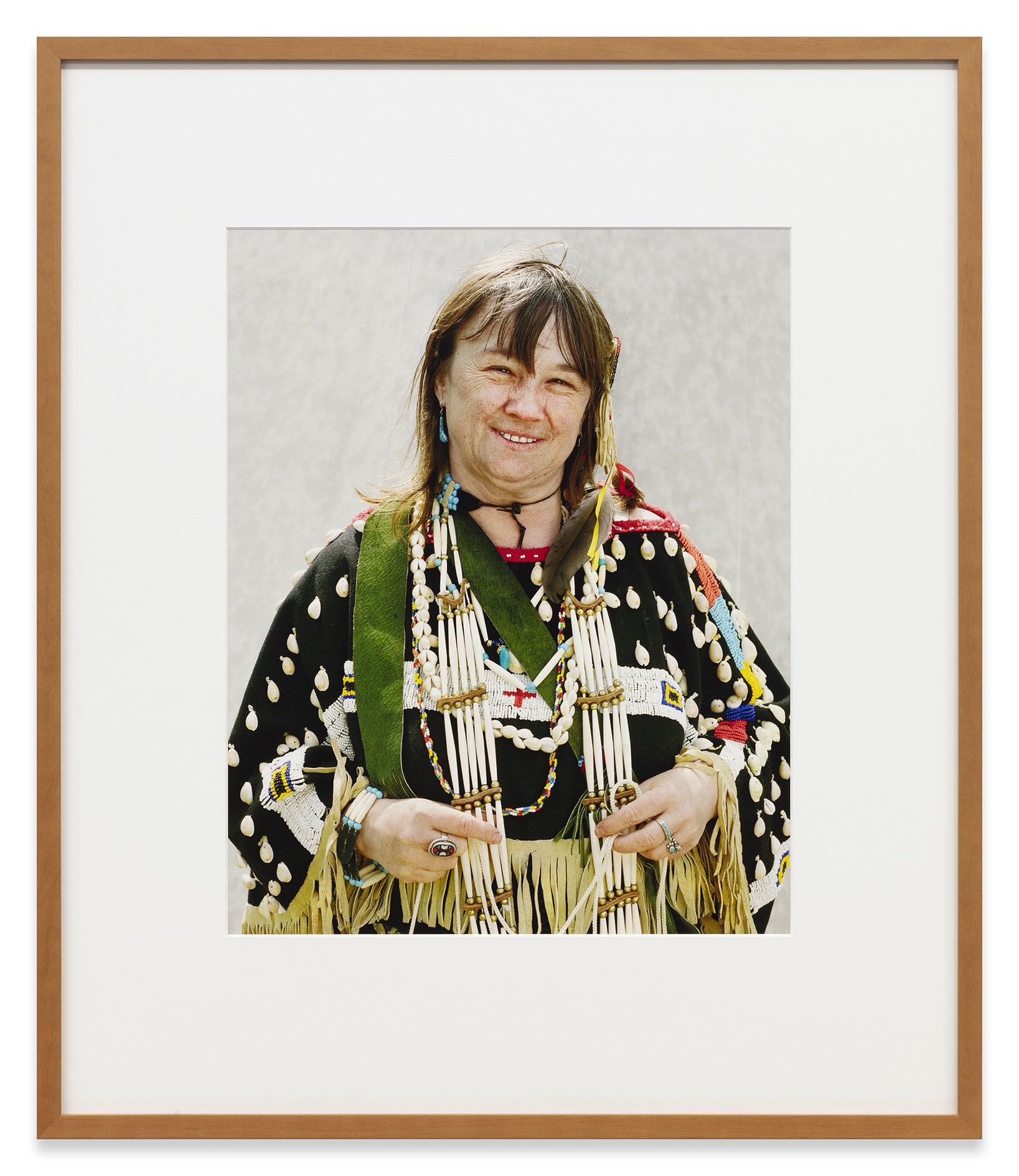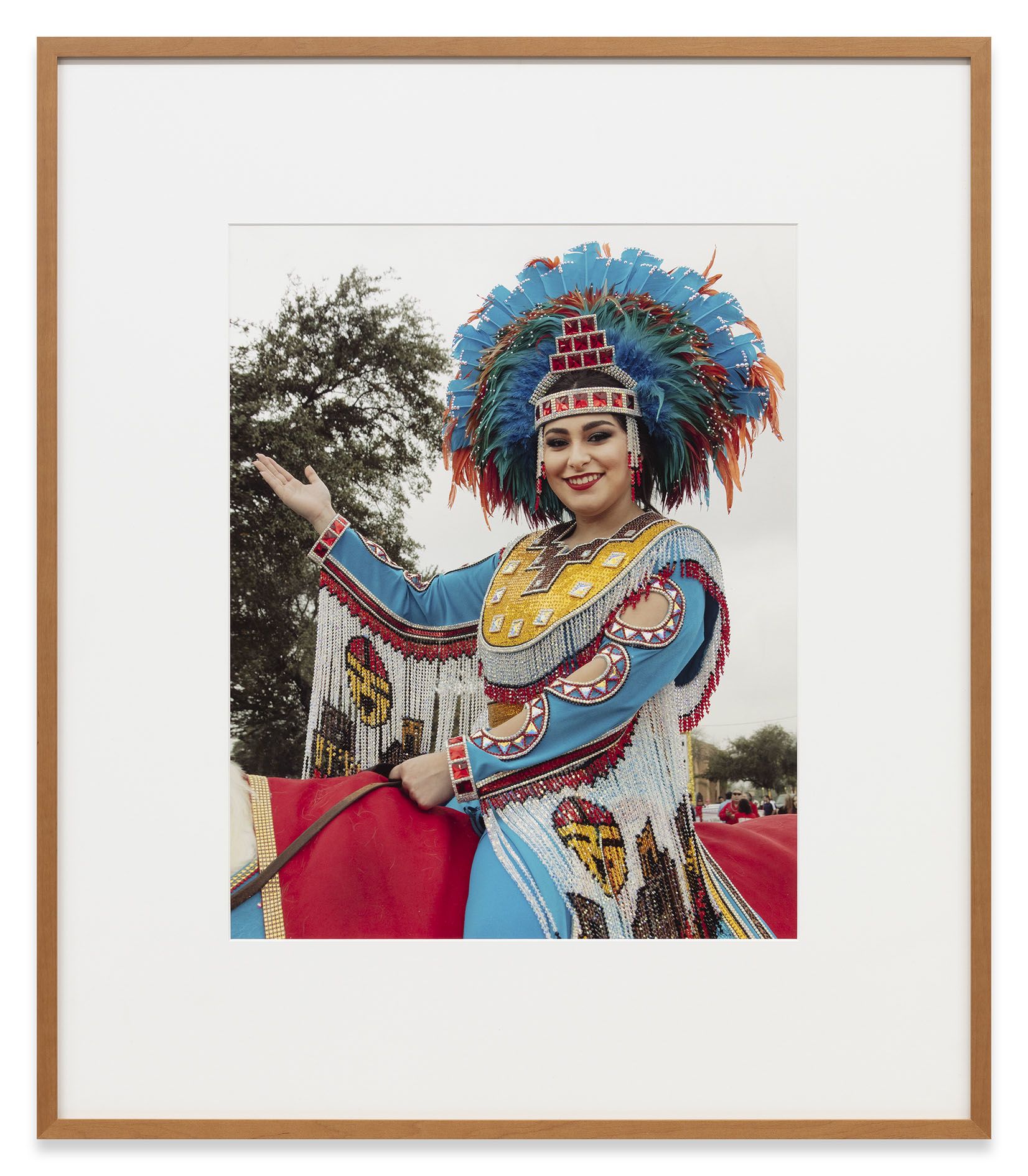Andrea Robbins / Max Becher
Nativist Americans
April 27–August 10, 2019
Berlin
Sprüth Magers is pleased to present Nativist Americans, a solo exhibition by Andrea Robbins and Max Becher. The show features a selection from three photographic series, some of which are exhibited here for the first time. In their practice, Robbins and Becher use photography to examine situations in which one place strongly resembles another distant one, what they have termed ‘the transportation of place’.
This show will include three series: German Indians 1997-98, The Improved Order of Red Men 2017, and Pocahontas Pageant, Laredo, Texas 2017-2019, which share a theme of the historic use of appropriated Native American culture as costume or disguise. The earliest series of the three, German Indians, presents German hobbyists in Native American dress in the town of Radebeul, near Dresden, the hometown of 19th century writer Karl May who wrote fictionalised and highly popular books featuring Native American characters that are still widely read by German audiences. The participants’ belief in Native Americans as a vanished people is made palpable by their attention to detail and celebration of a highly romanticised image of Native American peoples.
If the German Indians can be seen as attempting to recreate a colonial fantasy born of Karl May’s novels, then the Improved Order of Red Men, in the United States, adopt their dress for symbolic means, using costume as a signifier rather than an ethnographic recreation. The Improved Order of Red Men (I.O.R.M.) are a fraternal order who trace their roots to the Sons of Liberty, who protested British taxation and colonisation by donning Native American costumes to destroy a large cargo of imported tea in 1773 (known as The Boston Tea Party). In private rituals I.O.R.M. members dress in costumes reminiscent of 19th century pageants or historic plays. While membership in the I.O.R.M. has dwindled substantially since its heyday, groups still borrow words from Native Americans languages in their rituals and call their orders by ‘tribal’ names.
